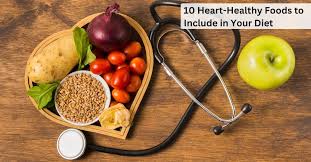Latest Articles

Contact Us
or Book an appointment now!






Frequently Asked Questions
-
How do I refuel after my workouts?
It's crucial to refuel after a hard workout. You should have a snack within 20-30 minutes of finishing your workout. Also, a balanced supper within three hours. You can replenish your muscles' energy stores by eating carbs (glucose-containing foods) 20-30 minutes after an exercise. Protein aids in muscle healing. Among the quick post-workout snacks are: chocolate milk protein shakes or bars containing 10-15g of protein and no more than 20g of carbohydrates fruit & Greek yogurt apple slices with peanut butter Protein and carbohydrates should be included in your next meal. Your post-workout meal or snack size will be determined by your gender, age, weight, and overall level of exercise. Asking your nutritionist is the best way to get it just right! Proper portioning will keep you satisfied and provide you consistent energy throughout the day.
-
Why do I regularly experience indigestion or heartburn?
Nutrients and digestion are intimately linked. Determining the cause of any stomach discomfort you encounter during or after eating is important. Indigestion or heartburn can be a result of overeating, acid reflux, too much intake of caffeine, certain medicines and other reasons. Dietary triggers, food sensitivities, and probable food intolerances can be identified with the help of a registered dietitian (RD). In collaboration with you, a nutritionist can build a customized meal plan that is pleasing to the palate while also being easy on the digestive system.
-
What is BMI?
The body mass index (BMI) is a typical technique for determining if a person's weight is healthy. It determines a person's weight in relation to their height by comparing their weight to their height. According to the National Institutes of Health (NIH): A BMI of less than 18.5 means that a person is underweight. A BMI of between 18.5 and 24.9 is ideal. A BMI of between 25 and 29.9 is overweight. A BMI over 30 indicates obesity.
-
How much should I be eating?
A person should eat a balanced diet.When it comes to common foods, many factors influence how much you should consume. Portion sizes and calorie counts are not universal; differences in age, gender, and activity level all influence how much a person should eat
-
What is a Balanced Diet?
A balanced diet is one that contains all of the essential nutrients required by the human body.A well-balanced diet includes essential nutrients such as carbohydrates, fats, vitamins, minerals, proteins, and fibre.A balanced diet includes sufficient and nutritious food that promotes good health.A healthy, well-balanced diet lowers the risk of disease and improves overall health.
-
What is a healthy weight range for me?
Many people are curious about the answer to the question “: "How much should I weigh?" However, because a variety of factors play a role, there is no ideal healthy weight for everyone.Age, muscle-fat ratio, height, sex, and body fat distribution, or body shape, are among them.














